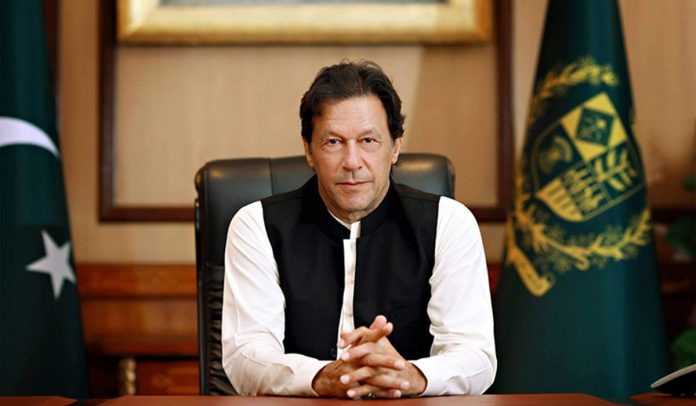Pakistani cinema has seen a rebirth in the last decade. Bol (2011) paved the way for industry-related people to invest in local filmmaking, whereas films like Jawani Phir Nahin Ani (2015) further improved the economical dynamics of the industry in Pakistan. While film producers and artists have consistently worked towards the betterment of the industry as a whole, there was a significant lack of government support to help the revival process.
Taking notice of the situation, Prime Minister Imran Khan chaired a meeting on 16th September to discuss an immediate revival of the cinema industry post the COVID’19 lockdown.
Meeting discussion
Lieutenant General (Retd) Asim Saleem Bajwa, Special Assistant to the Prime Minister on Information and Broadcasting, confirmed via Tweet that the Prime Minister is enthusiastic about the development of Pakistan’s film industry.
One of the key discussion points in the meeting was the lack of a sufficient quantity of cinema screens in the country. The Prime Minister was informed about the industry statistics of the times when the industry was fully functional. He was told that the country had 1150 cinemas before the year 2000. Currently, the nation has 150 multiplex screens and 70 cinema halls.
Revival of Pakistan’s Film Industry:PM chaired mtng& approved in principle,measures to revive film Industry,promote our cultural/societal values, improve production qual&take entertainment to masses.Directed concerned ministries to prep implementation plan #PakistanMovingForward
— Asim Saleem Bajwa (@AsimSBajwa) September 18, 2020
The committee discussed the importance of increasing the number of cinema halls, especially single screens for an affordable film-watching experience for the masses. It was discussed that the current multiplex ticket rates are very expensive for an average citizen especially from lower-middle socio-economic capacities.
Imran Khan made a statement at the meeting, “It is important to promote our culture/societal values through films to educate the young generation. Unfortunately, due to the lack of local content, we are unable to show youngsters our history.”
The government body aims to use the film industry as a soft power tool for the country internationally and to glorify the country’s cultural marvels through the help of filmmaking on a mass level. Prime Minister Imran Khan emphasized the need for increasing the number of films being made in the country and announced establishing a fund for monetary support to filmmakers and artists, especially technicians who are underpaid and work on daily wages.
“We were forced to buy foreign content which pushed us back in terms of content quality. It is high time to race our efforts for the resumption of our film industry.” The Prime Minister stated at the meeting.
Response from the fraternity
This announcement has been welcomed by the industry bigwigs such as Shaan Shahid, Humayun Saeed, and Fahad Mustafa. The actors expressed their happiness and excitement regarding the latest political development regarding the film industry on their social media handles.
Thank you @AsimSBajwa for your continued support as well for this cause. The Pakistan film industry has waited a long time for this moment. Thrilled, excited and absolutely ready to contribute to the industry's progress
— Humayun Saeed (@iamhumayunsaeed) September 18, 2020
Dear PM @ImranKhanPTI thankyou for your initiative to promote and rebuild Pakistani film industry. We always believed this day will come when we work together to bring pride , values and our cultural power back on the right track . @AsimSBajwa thankyou for your support as well.🇵🇰
— Shaan Shahid (@mshaanshahid) September 18, 2020
The Teefa In Trouble star Ali Zafar called this move a “game-changer” for the Pakistani film industry. Singer Shehzad Roy urged for an expansion of cinemas as many livelihoods depend on it. Director Nabeel Qureshi enthusiastically called the development as “best news!”
Final Word
If the revival strategies discussed at the meeting gets implemented, it will greatly benefit the film industry. Not only will the industry contribute to the national GDP but it will also create multiple employment opportunities for people related to the fields of creative arts. Cinema as a soft power tool has worked well for countries such as India and Turkey and can prove to be favorable for Pakistan’s international media coverage. Government support will provide important resources to the industry to flourish and be financially more viable for the economy in the long-run.




